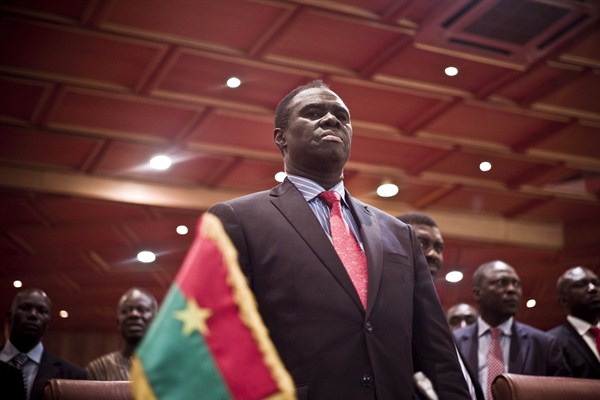Exactly a week after he was taken hostage by soldiers from Burkina Faso’s elite presidential guard during a short-lived coup led by Gen. Gilbert Diendere and other loyalists of former President Blaise Compaore, transitional President Michel Kafando officially returned to office on Sept. 23. He thanked international mediators from neighboring West African states, the African Union and the United Nations for helping to isolate the coup with their condemnations and threats of sanctions, and praised the loyalty of the regular armed forces.
Kafando also highlighted a key factor that received only limited media attention during the week-long crisis: the “national clamor” against the coup by Burkina Faso’s youth, civil society groups and others—an opposition expressed in daily demonstrations and a 10-day general strike led by trade unions. Alluding to earlier mass demonstrations that helped topple Compaore’s autocratic government a year ago, Kafando observed that the people’s resistance to the recent takeover attempt “demonstrates that the heightened consciousness that guided the insurrection has not diminished, to the contrary.”
It was that insurrection at the end of October 2014 that prompted Compaore to flee to Cote d’Ivoire and brought in Kafando’s transitional administration. The new government’s main task was to organize new democratic elections, but it also promised other basic reforms. On the latter, its performance was mixed, reflecting both impossibly high expectations and its own nature as an uneasy amalgam of career bureaucrats, military officers, professionals and civil society activists.

